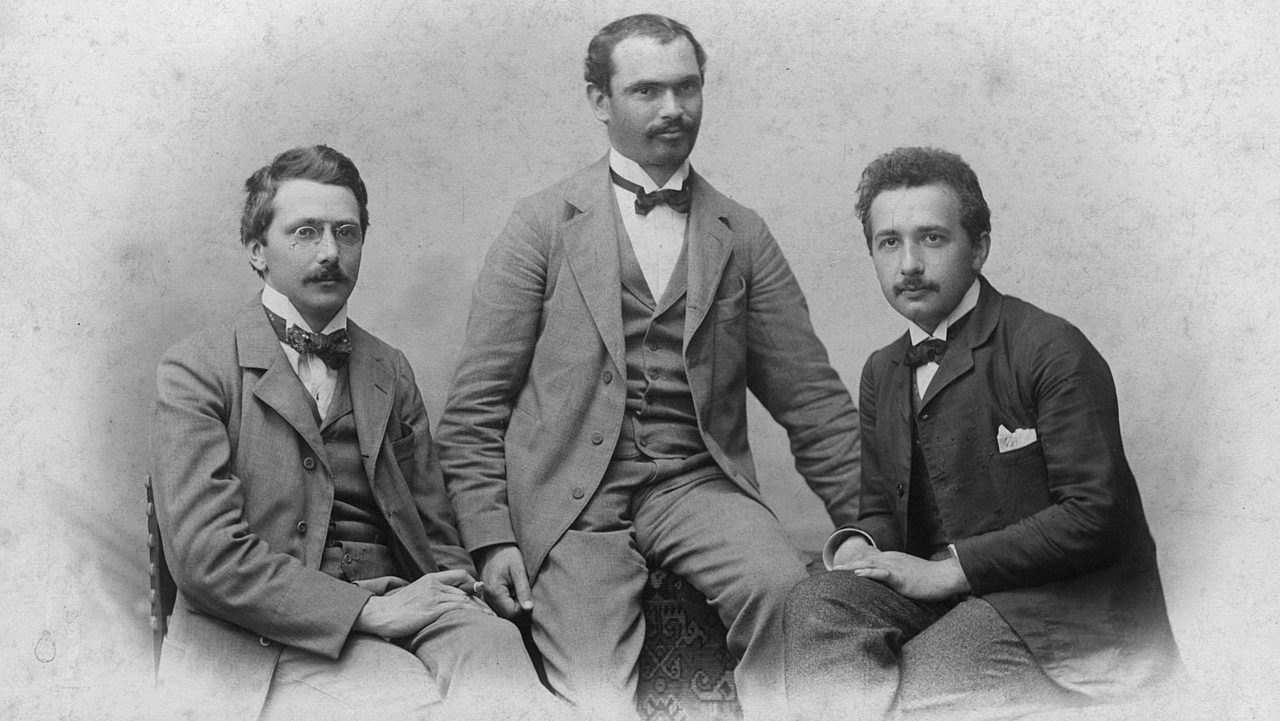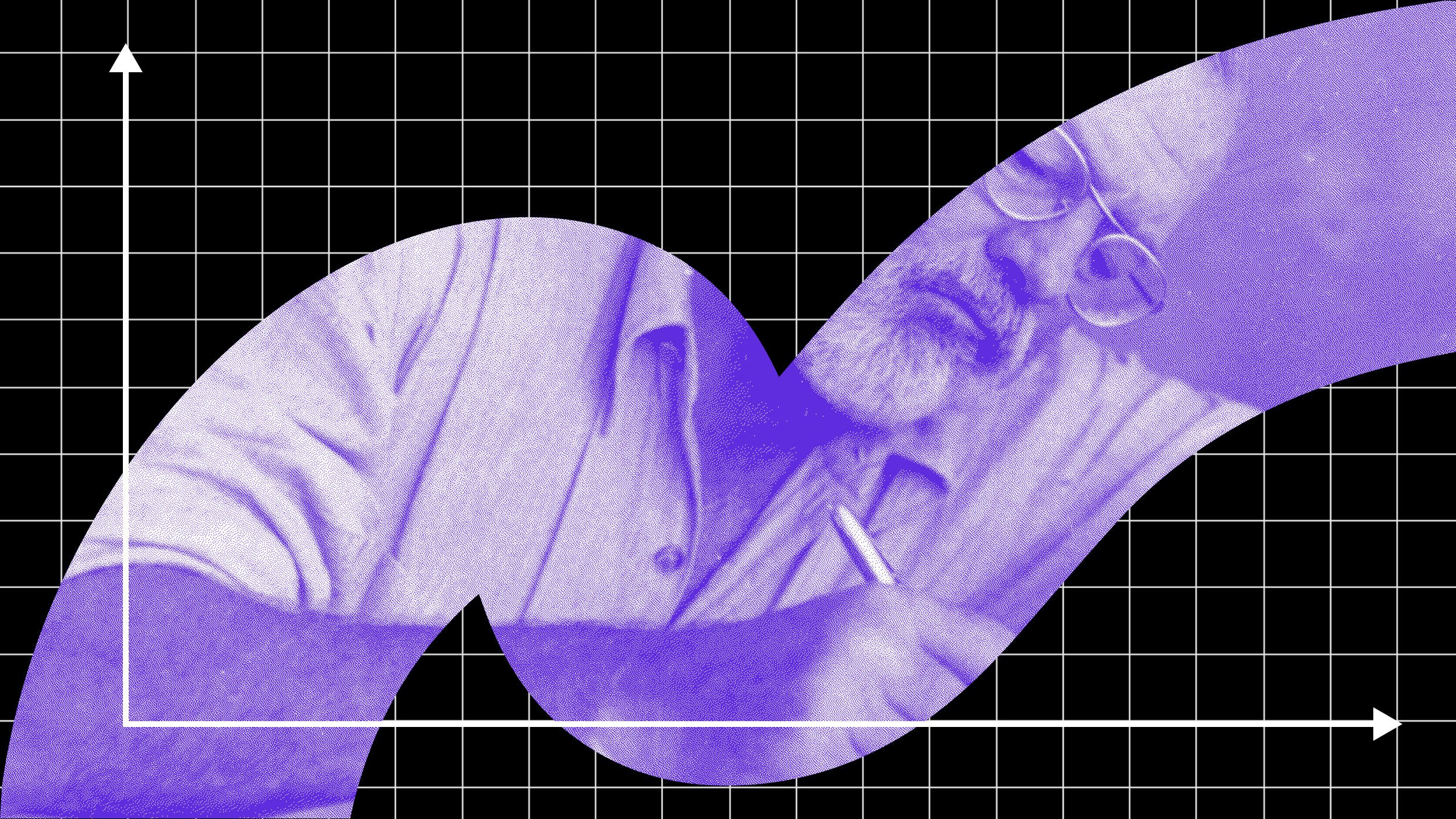As an adolescent, the comedian found comfort, inspiration and fellowship in the nineteenth-century playwright’s work.
Question: When did you discover Oscar Wilde?
Stephen Fry: I say and I think it’s true that for the most, the first moment with Oscar was language. I was youngish, eleven-ish, twelve-ish, too young really to be... well, to be entirely sure of my sexuality or what that sexuality meant. I think I’ve always been aware of my sexuality, but I never quite knew what it meant, but what I… So that side of him I would come on to, but first it was language and I remember there is a line of Algernon’s in The Importance of Being Earnest and I was watching the film The Importance of Being Earnest and Algernon says to Cecily, “Would you be in any way offended if I said that you seem to me to be in every way the visible personification of absolute perfection?” And I leaned forward and I… There were no videos and instant pauses and on TiVo in those days and I replayed it in my brain. “Would you be offended if I said that you seem to me to be in every way the visible personification of absolute perfection?” And I thought how unbelievably beautiful, the swing, the balance the rhythm. How clever to make a sentence that’s all full of Latinate words ending in ation, to make that sing and poetical because mostly in the English language the words that are lyrical and beautiful are not words like the personification. They’re rather technical clunky words, but just simply by colliding them together it’s funny and beautiful and breathtaking and I had never… I’d know that you could use language to say, “Can I be excused?” “I need to go to the men’s room.” I knew that you could to say, “I want some more.” I knew that language had that function, but the idea that it could be used to dance, that it could be used to delight, that it could be used to enthrall quite so magnificently was new to me, so I read. We had right in the country the library would come and visit us. It was what is called a mobile library. It’s like a big van and it would come about you know a half a mile from the house and walk down a country lane to where it used to stop and get in and that’s where I get all my books and so I said, “Do you have any Oscar Wilde?” And they said, “Yes.” I said, “I want a play called The Importance of Being Earnest.” And they said, “Yes, I think we’ve heard of that one.” And then it gets to me and I’m saying it’s there in front of me and I read it and I kind of learned the whole play off by heart. I mean I can still to this day, “Did you hear what I was playing on the piano just now?” “I didn’t think it polite to listen sir.” And so on and that’s how the play begins. “I’m sorry for that for your sake.” “I don’t play the piano well.” “Anyone can play the piano well, but I play with wonderful expression.” And so on.
Anyway, I just became obsessed and then I saw a biography by a man called Montgomery Hyde of Wilde, so I read the biography and this is where it all changed because not only was this man as I said before, a lord of language, it’s a phrase of his own actually, but he was if you’d like a kind of secular messiah, a Bohemian prince of the most fantastic power and beauty and grace and gravity and he collected friends and he looked at the world and he showed you the true colors of things as no one had and on top of that he shared what I knew instinctively was my sexual preference of my own kind and not only that, but it caused of course him the most appalling suffering. He was despised and rejected of man in the most terrible way and then when I read “De Profundis”, the letter he wrote to Lord Alfred from Reading Jail I think it was perhaps one of the most extraordinary moments of my life. Now of course like a lot of people in my generation that meant I grew up with a sense of doom being allied to sexuality, that there were no… Literature and biography offered no examples of happy endings for homosexual people. Gay wasn’t used then. So I had an immense and obvious sense of the fact that my life would be doomed, would be fatal and would probably end in prison or in shame and something horrible, but the knowledge that I would be joining Oscar Wilde and then after that of course through bibliographies you find out other people you know Andre Geed or whoever, Michael Angelo. I would be joining a kind of Olympia of fabulous men and women who were better than others. They had a special inside. They vibrated at art and beauty with a sort of greater frequency and gave off a more wonderful harmonic than most people did and so I was proud to be an elect even if it was a doomed elect. That was my sentimental and adolescent I suppose response to my sexuality. I can’t imagine how different it would have been if I had been born twenty years later into a world of the internet and much more open things. I’m sure it would have been a lot less doom laden, but I suspect I would have read a lot less literature and I would have been a lot less interested in the intellect and the life of the mind. I would have been much more interested in just getting my rocks off I suppose because it would have been easier to do so I guess. I would have been…felt less guilty for so long. There are compensations though for the era in which I grew up and that is as I say, the fellowship of literature.
Question: What was it like portraying Wilde?
Stephen Fry: Yes. I never thought of course when I grew up loving Wilde and collecting his books and even trying to collect early editions that I would one day play him onscreen. It was simply unthinkable, but it did come to pass. I became aware as I entered my thirties that it was just being shall we say, I was disposed to the adipose. I was getting a little plump, that I could if I grew my hair look a little like him and although that is a completely irrelevant basis on which to be qualified to play someone is it… It just sets the thing on your mind and the English player Bennett once stopped me in Jo Allen’s in London just as he was passing the table and he said, “I was looking at you from across the room and it suddenly occurred to me you look terribly like Oscar.” “You know, you should play him one day.” And I thought… and I looked in the mirror. I went to the gent’s and I looked in the mirror and I thought gosh and I really didn’t think much more of it. Occasionally people would use that tediously predictable phrase born to be wild and then suddenly I was approached by Julian Mitchell the writer and Brian Gilbert the director and Marc Samuelson the producer who had this project and saying would I play Oscar Wilde and it was overwhelming and what was even more overwhelming was they had as a consultant this wonderful charming man called Merlin Holland who was Oscar’s grandson who was younger than Wilde was when Wilde died and that connects us to is and it just so happens that Wilde’s younger son Vivian Holland married very, very late and had a very late child and hence Wilde’s grandson lived you know a hundred years after Wilde was Wilde’s age, which is rare. So anyway, that seemed so exciting and novice and I prepared it. I read as much as I could of course, but nothing can prepare you for the… I don’t know. Everyday getting up and worrying about whether or not you’re going to let him down, whether… I mean the one thing I was absolutely determined was that Wilde was not just a sort of epigram factory, just a machine for spouting witticisms in a camp brittle pea cocky manner going oh, how to, to utterly utter. Everyone who described him described the mellow gravity of his voice, the seriousness of which he looked into your eyes, which is what made him so funny because he you know everything he said was said as if it was absolutely true, so when it was a dazzling paradox or a mother’s aphoristic turn of phrase, literal turn of phrase, you know where the thing is inverted you know like, “Work is the curse of the drinking classes.” He didn’t say it in inverted commas as if he knew it were a joke. He said it as if he had just seen it as the truth and that made it funnier, but it was also part of his whole manner is that there was a direct simplicity about him, not an arch campiness, which is… So even if I was hopeless I hoped the one thing I could set straight about Wilde was that, so that was a heck of a feeling.
Another side to him is of course that naturally people think of him as a gay martyr and a gay icon and a gay symbol for the age, but that he was a marvelous father until he wasn’t, until of course he created such a scandal or it was embroiled that the scandal obviously was disastrous for his family and that betrayal was not a piece of good father, good piece of good fatherhood, but while he was a father he was a kindly father, a loving father and he created one of the greatest gifts to children that there ever was, which is his fairy stories, which I don’t think are well known enough. I think they rank absolutely with the Grimm fairy stories and the Hans Christian Anderson fairy stories. They’re marvelous tales. They have all his qualities and something extra, greatness of heart and the beauty and the charm and then amazing, I think the word is proleptic, a sort of prophetic vision almost of what suffering and pain and sacrifice he would go through, although they were written at the height of his happiness and his riches and his popularity. There is a sort of doom in the way the stories play out, which is quite staggeringly as I say proleptic.
Question: Does Wilde speak to modern issues?
Stephen Fry: I suppose I mean yes, Wilde teaches us much, even from a 120 years in the past seems as true as ever it was. He wrote marvelously in his essay “The Soul of Man under Socialism” about the press. In medieval times they had the rack. Now we have the press. He… I think he predicted really quite brilliantly the enormous growth of the press, the impertinence of the press, how wrong it was that the emphasis on the press was on the individual lives of private people rather than on sharing truth and beauty and innovation and I’m afraid I don’t really enjoy the press at all. I like to know what is going on in the world, but that’s a very small part of what the press delivers, so I haven’t read a newspaper for fifteen years I think, twelve years certainly and certainly not a British one. I just don’t and I find I get on with an… without them incredibly well. It is actually not just that it makes me less unhappy. It actually makes me actively happier. It’s as if some huge weight is rolled off me not to read the opinions of others and I can quite understand why others wouldn’t want to read the opinions of me and they don’t have to and that’s the beauty of it is let’s not… But there is a sort of I think a more… Wilde understood, but there is a sort of furious anger in certain class of journalists that they’re not being heard even though they have access to everyone of their readers the fact that someone else isn’t listening or isn’t paying attention drives them slightly potty and they actually want to bellow their malice into the ear of the person to whom it is directed and if they felt that person wasn’t getting it, it would really annoy them because they want to hurt. They actually want to hurt people and that’s unfortunate. I just don’t want to be a part of it and the thing was I was a part of it. I’m really not speaking as some giant noble spirit who is easily wounded and must be sympathized with. I was a journalist or at least a columnist, which is not… which is what my objection is in news galleries. I was a columnist for several years for The Daily Telegraph in England which is the most successful or at least sells the most copies at least of the serious newspapers and I could see how easy it was to become this poisoned figure because the… You know there is nothing easier than writing and article against something, which is so simple. It writes itself. You just got to be angry about something and just got to puff and wheeze with indignation and fury and resentment and bile and malice and the thing writes itself and if you write anything that’s for something it looks sentimental and cutesy and you know so much… and so much harder to write, so much harder to write well. So all the successful columnists are… certainly in the British press are vicious and they’re good at being vicious and admirable and if you share their politics mostly their viciousness is something you can applaud. If you don’t then you just call them beasts and animals and revolting. It just gets so annoying. It’s such a pity and that’s one of the reasons I love the online world is that although that exists in abundance you can choose absolutely which part of the online world you want to live in. You can make your own kingdom in that sense, so things like Twitter or whatever I’m sure there are all kinds of Twitter you know clusters of people who have politics that I would find horrific and really just views that I would preposterous and impertinent, but I just don’t have to follow them and I can block them and I will never know they exist and that’s glorious.
And similarly as long as you don’t lower your eyes when reading a blog, as long as you don’t go down to the comment section where the trolls lurk, where the viciousness is because that’s… I mean there really is just suppurating, boiling seas of acid where if you just so much as dip a toe you’ve lost your limbs you know, just vileness abounding. Again, there is this resentment, “I will be heard and not only will I be heard I will offend.” “I will tear.” “I will lacerate.” “I will wound.” “I want the sensibilities of anyone who disagrees with me to be bruised beyond mending.” That kind of attitude is very strong on the net and for all that we can be advocates for the glory and the democracy that exists online we must be aware too that that dark side of humanity that just needs to be heard and can’t bear people like me for example who have access to greater numbers of followers on Twitter or whose website gets more hits and the more they see that, the more the web becomes a reflection of their view of the meanness and wrongness of society where somebody will get it all and others get none and then the more bitterness there is and I think it’s difficult because I don’t certainly want there to be aristocracy on the net. I don’t want there to be that. I think that whole beauty of it at its best is that there is genuine equality and genuine reciprocity between you know a Twitterer and his or her followers or between a blogger and their readers and that it’s not… You know it’s not an audience going to one site that is permanent and stable and is like the equivalent of the old models of the broadcaster, but that it’s much more fluid and the broadcaster becomes the broadcasted too, you know the TV station becomes the audience and as long as people believe that and behave as if that is true then there is real hope in the way information is going.
Recorded December 8, 2009






